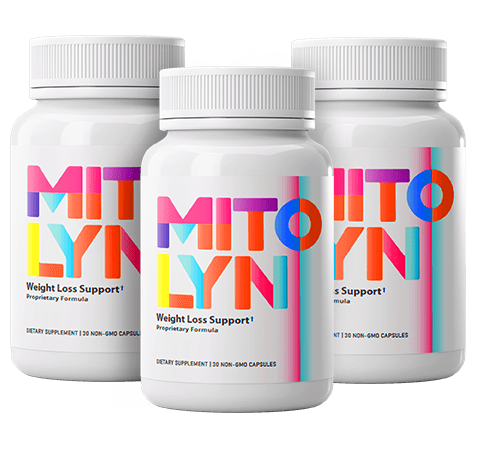Unlocking the Power of Integrative Health: A Comprehensive Guide to Holistic Wellness
Integrative health is a holistic approach to wellness that focuses on treating the whole person – mind, body, and spirit. It combines conventional medicine with alternative therapies to address the underlying causes of illness and promote overall well-being. By integrating the best of both worlds, integrative health offers a more comprehensive and personalized approach to healthcare that can lead to better outcomes and improved quality of life.
What is Integrative Health?
Integrative health is a patient-centered approach that considers the individual as a whole and takes into account all aspects of their health – physical, emotional, mental, and spiritual. It recognizes that each person is unique and that their health and well-being are influenced by a variety of factors, including genetics, lifestyle, environment, and social determinants of health.
Integrative health focuses on prevention and wellness, as well as the treatment of illness. It emphasizes the importance of lifestyle factors such as nutrition, exercise, stress management, and sleep in promoting good health and preventing chronic diseases. It also recognizes the role of the mind-body connection in health and healing, and the importance of addressing emotional and spiritual needs in addition to physical symptoms.
Benefits of Integrative Health
Integrative health offers a number of benefits over conventional medicine alone. By taking a more holistic approach to health and wellness, integrative health can help to:
- Improve overall health and well-being
- Reduce the risk of chronic diseases
- Enhance the body’s ability to heal itself
- Improve quality of life and sense of well-being
- Reduce the need for medications and invasive treatments
- Empower individuals to take control of their health
Integrative health can also be more cost-effective in the long run, as it focuses on preventing illness and promoting health, rather than just treating symptoms once they occur. By addressing the root causes of health issues and supporting the body’s natural healing processes, integrative health can lead to better outcomes and a higher quality of life.
Components of Integrative Health
Integrative health incorporates a wide range of therapies and modalities to address the physical, emotional, mental, and spiritual aspects of health. Some common components of integrative health include:
Nutrition
Proper nutrition is essential for good health and well-being. Integrative health emphasizes the importance of eating a balanced diet that is rich in whole, nutrient-dense foods and free of processed and inflammatory foods. Nutrition therapy can help to prevent and manage chronic diseases, support the immune system, and promote overall health.
Exercise
Regular physical activity is key to maintaining good health and preventing chronic diseases. Integrative health encourages a variety of exercise modalities, including cardiovascular exercise, strength training, yoga, and tai chi, to promote overall fitness and well-being.
Stress Management
Chronic stress can have a negative impact on both physical and mental health. Integrative health offers a variety of stress management techniques, such as mindfulness meditation, deep breathing exercises, and biofeedback, to help individuals cope with stress and improve their overall well-being.
Alternative Therapies
Integrative health incorporates a variety of alternative therapies, such as acupuncture, chiropractic care, massage therapy, and herbal medicine, to address a wide range of health issues and promote healing. These therapies can be used alone or in combination with conventional treatments to enhance their effectiveness.
How to Incorporate Integrative Health into Your Life
There are many ways to incorporate integrative health into your life and promote holistic wellness. Here are some tips to help you get started:
Eat a Balanced Diet
Focus on eating a variety of whole, nutrient-dense foods, such as fruits, vegetables, whole grains, lean proteins, and healthy fats. Limit processed and inflammatory foods, such as refined sugars, trans fats, and artificial additives, which can contribute to chronic diseases and inflammation in the body.
Stay Active
Make exercise a regular part of your routine by engaging in activities that you enjoy, such as walking, biking, swimming, or yoga. Aim for at least 30 minutes of moderate-intensity exercise most days of the week to support your overall health and well-being.
Manage Stress
Practice stress management techniques, such as mindfulness meditation, deep breathing exercises, progressive muscle relaxation, or yoga, to help you cope with stress and promote relaxation. Take time for self-care activities that you enjoy, such as reading, listening to music, or spending time in nature.
Explore Alternative Therapies
Consider incorporating alternative therapies, such as acupuncture, chiropractic care, massage therapy, or herbal medicine, into your wellness routine to address specific health issues or promote overall well-being. Consult with a qualified healthcare provider to determine which therapies are right for you.
Conclusion
Integrative health offers a comprehensive and personalized approach to wellness that can help you achieve optimal health and well-being. By addressing the physical, emotional, mental, and spiritual aspects of health, integrative health can support your body’s natural healing processes and empower you to take control of your health.
By incorporating nutrition, exercise, stress management, and alternative therapies into your life, you can promote holistic wellness and prevent chronic diseases. Take the time to explore different modalities and find what works best for you, and consult with a qualified healthcare provider to develop a personalized integrative health plan that meets your individual needs and goals.
Unlock the power of integrative health and experience the benefits of a holistic approach to wellness today!










